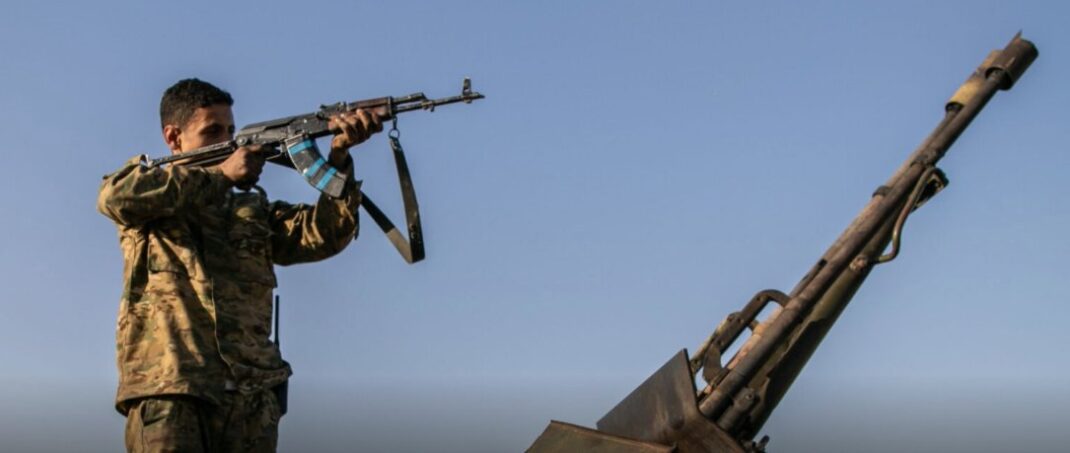Alessandro Scipione
 The United Nations plan to bring Libya to the elections by the end of the year is about to collapse, with the risk of prolonging the agony of a country that in theory boasts the largest oil reserves in Africa and that until ten years ago was main ally of ‘Italy in the Mediterranean.
The United Nations plan to bring Libya to the elections by the end of the year is about to collapse, with the risk of prolonging the agony of a country that in theory boasts the largest oil reserves in Africa and that until ten years ago was main ally of ‘Italy in the Mediterranean.
The hourglass of December 24, the symbolic date of the 70th anniversary of independence chosen to go to work, will expire in four months.
Libyan sources consulted by Agenzia Nova express skepticism about the efforts of the UN and believe “very likely a postponement of the elections of at least a few weeks, at best in January”.
The Libyan Independent High Electoral Commission had indicated a series of deadlines (first at the beginning of July, then by the first ten days of August), all expired, in order to organize the elections in an at least decent way.
This does not necessarily mean that the December vote “doesn’t have to be done”, but taking Libyans by the scruff and forcing them to go to the polls without clear rules could turn out to be a bad idea.
It is worth remembering that the first major split between east and west occurred precisely because of an election, that of 2014, contested by the losers.
Why are elections at risk?
Those in power today say they are in favor of the vote, but in reality they have no intention of giving up their seat, following a very Italic custom in this.
The problem is that the big names in the Libyan political arena, such as General Khalifa Haftar in the east or the former Minister of the Interior Fathi Bashaga in the west, have been excluded from the cumbersome UN plant that today seems to be making water everywhere.
Interim Prime Minister Abdulhamid Dbeibah, Misrata businessman accusedto have arrived in the control room buying votes and giving favors (accusations in truth always rejected by the person concerned), cannot reapply according to the bizarre rules of the Political Dialogue Forum (LPDF), the 74-member body that has chosen the date of the elections and appointed the current transitional executive authorities.
It is not clear why Dabaiba should abandon the leadership of the government and jump through hoops to make possible elections that would exclude him.
The same goes for Aguila Saleh, the president of the Tobruk House of Representatives elected in 2014 with a turnout of just 18 percent of those entitled, and for Khaled al Mishri, the president of the High Council of State of Tripoli, the advisory body created in 2015 where the members (mostly Islamists) of the dissolved and National General Congress converged.
If the elections were to be postponed, none of the aforementioned would tear their clothes off.
As for the “field marshal” Haftar, met by the Foreign Minister Luigi Di Maio on l2 August and by US special envoy Richard Norland on 12 of the same month, he seems willing to run for the office of president, but to date it is not yet clear whether he can do so.
The difficulties of Jan Kubis
Jan Kubis, the former Slovak foreign minister who took the baton from the Lebanese Ghassan Salamé and the American Stehpanie Williams at the helm of the Nations Support Mission in Libya (Unsmil), did not live up to expectations.
The Forum of Political Dialogue is mired in a war of position between opposing factions that does not allow to approve the “rules” to go to the vote.
In defense of the capable UN diplomat, a big man of two meters with solid experience as a UN envoy in Lebanon (another Arab nation on the edge of the abyss), it must be said that the legacy left by the duo Salamè-Williams (a by the way, the couple are about to publish a book about their Libyan experience) was very heavy.
The fact is that today the elections in Libya remain a chimera.
Will we vote only for the parliament or also for the president?
What are the eligibility criteria?
Can the military be a candidate?
Will a proportional, majority or mixed voting system be used?
How can “free, fair and transparent” elections be held under the threat of weapons from foreign militias, mercenaries and fighters?
At present, all these issues remain unsolved. Given the situation of total uncertainty, perhaps postponing the elections for a few weeks would be the best thing for everyone, at least for the moment.
But beware: crystallizing this status quo for too long could certify the partition (de factoexisting) of Libya in areas of influence of foreign powers such as Turkey, Russia and the United Arab Emirates.
A scenario that Italy would do well to avert at all costs.
***
Alessandro Scipione – Italian international journalist based in Rome. s MENA news coordinator at Agenzia_Nova.
_____________




